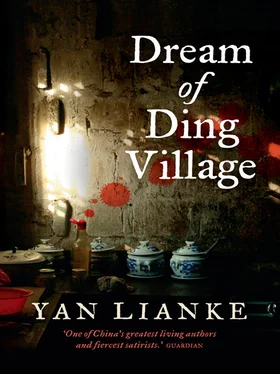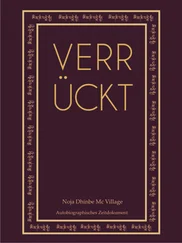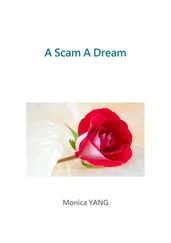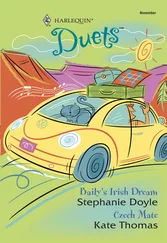And so Xiaoming’s parents began trying to find a new match for their son.
Lingling’s parents, grumbling and cursing, brought their daughter home.
But spring had come early that year, and summer was right on its heels. The weather grew warm, then hot; padded winter coats were replaced by spring jackets, then by shirtsleeves. By the time it was warm enough for a single layer, Lingling returned to her husband’s home in Ding Village to fetch her summer clothes. As she was walking out of the door with her bundle of belongings, her mother-in-law eyed the bulging bundle and asked: ‘Are you sure you haven’t taken anything that doesn’t belong to you?’
‘I’m sure,’ Lingling answered.
‘It’s only a matter of time before Xiaoming finds a new wife,’ her mother-in-law continued. ‘If you’re still alive when he does, you must come back and give him a divorce.’
Lingling said nothing. Once she was through the door, she turned back to gaze at the house, with its gleaming white porcelain-tiled walls. The seams between the tiles were as straight and black as if they’d been painted on with ink. After a few moments, she left the house and began walking out of the village.
She came to the concrete road outside the village. A straight line cutting through the fields, it was raised about half a foot above the surrounding soil, with drainage ditches on either side. The rows of cottonwood trees that had once lined the ditches were gone, chopped down by the villagers. The ditches were now filled with weeds and wild grass that rustled in the wind. At this time of year, the wheat plants — having raised their heads and steeled their spines — stood tall, and the fields were filled with people irrigating their plots.
Walking down the treeless main road under the blazing midday sun was like passing through a corridor of fire. The spots on Lingling’s face started to itch in the heat, but she didn’t want to scratch them, for fear of breaking the skin. She stroked her face with the tips of her fingers, softly, as if she were caressing the face of a newborn child. She walked along slowly, aimlessly, stroking her face, her eyes fixed on the pavement in front of her. Suddenly she heard her name being called: not loudly, not softly. The sound seemed to fall from up above.
‘Lingling. .’ It was Uncle’s voice.
She stopped and raised her head. Uncle was standing by the side of the road, only a few steps away. He looked just the same as she remembered. Slightly paler, perhaps; a bit closer to death. For a moment, they just stared at each other. Then Lingling, remembering where she was, looked behind her nervously.
‘We’re alone,’ said Uncle. ‘But even if we weren’t, there’s nothing to be scared of.’
‘What are you doing here?’ she asked.
Uncle sat down at the side of the road. ‘I heard you were back, so I waited for you here.’
‘What do you want?’
‘Sit by me.’
Lingling seemed to hesitate.
‘Tingting left me and went back to her hometown,’ Uncle explained.
Lingling sat down beside him, shoulder to shoulder.
After an awkward silence, Uncle spoke. ‘So you came back for your summer clothes?’
‘Um-hum,’ Lingling murmured, jiggling the bundle in her arms.
‘How are you feeling?’
‘About the same.’
‘Me, too,’ said Uncle. ‘I made it through the winter and most of the spring, so I think I should be able to live through summer, maybe longer.’
Their conversation exhausted, the two were silent for a while. Then Uncle smiled and took Lingling’s hand in his. It was not long after Zhao Dequan’s death, not long after Uncle had visited Lingling at her parents’ house to pick up her red silk jacket, but they acted like two people who hadn’t met in years: hand in hand, gazing into one another’s eyes, their silent thoughts unspoken. Uncle turned over Lingling’s hand, examined the dried scabs on her wrists and hands, and then lightly, tenderly, scratched them. Lingling shrank back. Her eyes filled with tears and she pulled her hand away.
‘Don’t leave,’ Uncle said. Linging looked up in surprise. ‘Tingting wants a divorce, and so does Xiaoming. That means we can be together.’
Lingling was silent.
‘Neither of us has much time left.’ Uncle’s eyes were moist. ‘Everyone says that after this winter, the fever’s going to explode. No matter what happens in this life, at least we can be together in death. They can bury us side by side, and we’ll keep each other company.’
Lingling raised her head again, teardrops glistening in her eyes like big bright pearls.
‘What is there to cry about?’ Uncle asked, wiping away her tears. ‘We’re going to die anyway, so who gives a damn what other people say? We should move in together. I’d like to see them try to stop us. Let’s move in together and show them all. Tingting, Xiaoming. The whole village. . we’ll show the lot of them.’
Uncle smiled through his tears. ‘So Tingting and Xiaoming want to divorce us? Let’s move in together and sue them for divorce.
‘If you go back home, your parents and brother will feel sorry for you, but what about your sister-in-law? She knows you’ve got the fever, so you know she’s going to give you the cold shoulder.
‘You can move into my house. Or if you don’t want to be around Tingting’s stuff, we can live outside the village, in the building beside the threshing grounds. I’ll bring some pots and pans and cookware, and it’ll be just like home.’
And so Uncle and Lingling moved in together.
They lived together brazenly, like husband and wife. Like a pair of young lovers. Like a couple of fools.
*
Uncle and Lingling set about making the two-room building of mud brick and tile into a home. Uncle brought bowls, woks, sheets and blankets from his house so they could live in comfort. The fields around the village were divided into private plots, but the threshing grounds were communal, usually shared by about a dozen households. After the Communist government was established in 1949, the threshing grounds had been divided among ‘mutual-aid teams’. Later, when the People’s Communes were formed, they were shared by ‘production brigades’. Now that the communes had been disbanded and the villagers had returned to farming private plots, the threshing grounds were divided informally among groups of households. When the thatched hut next to this threshing ground had collapsed, the villagers had pitched in to build a two-room building of mud brick and tile. During the busy harvest season, when the villagers took turns threshing wheat, the building was used as a place to rest or nap. During the rest of the year, it was used for storing farm equipment.
And now it was Uncle and Lingling’s new home.
They set up a makeshift stove, and the outer room became a kitchen. They made a bed from planks of wood, and the inner room was transformed into a bedroom. They mounted shelves on the walls and heaped them with basins and bowls; they nailed baskets to the walls and filled them with chopsticks; they arranged the pots and pans and woks and crocks. When there was a place for everything and everything was in its place, the little mud-brick building felt just like home. A house that they could call a home, a place that made them feel at home.
At first, Uncle tried to be discreet about the move, waiting until it was dark to sneak back to his house and collect his things. But after a few days, when he realized that no amount of discretion could keep the villagers from finding out, he threw caution to the wind and ventured out in broad daylight. If the cat was already out of the bag, the water over the dam, the soy sauce spilled and the vase broken, what the hell did it matter, anyway? He was comfortable with his transgressions, resigned to his fate. And so he made no secret of the fact that he was carting food, fuel and furniture, the necessities of daily life, from his house to the threshing ground. If, on his way, he happened to run into one of the villagers, he was as guileless as glass.
Читать дальше












